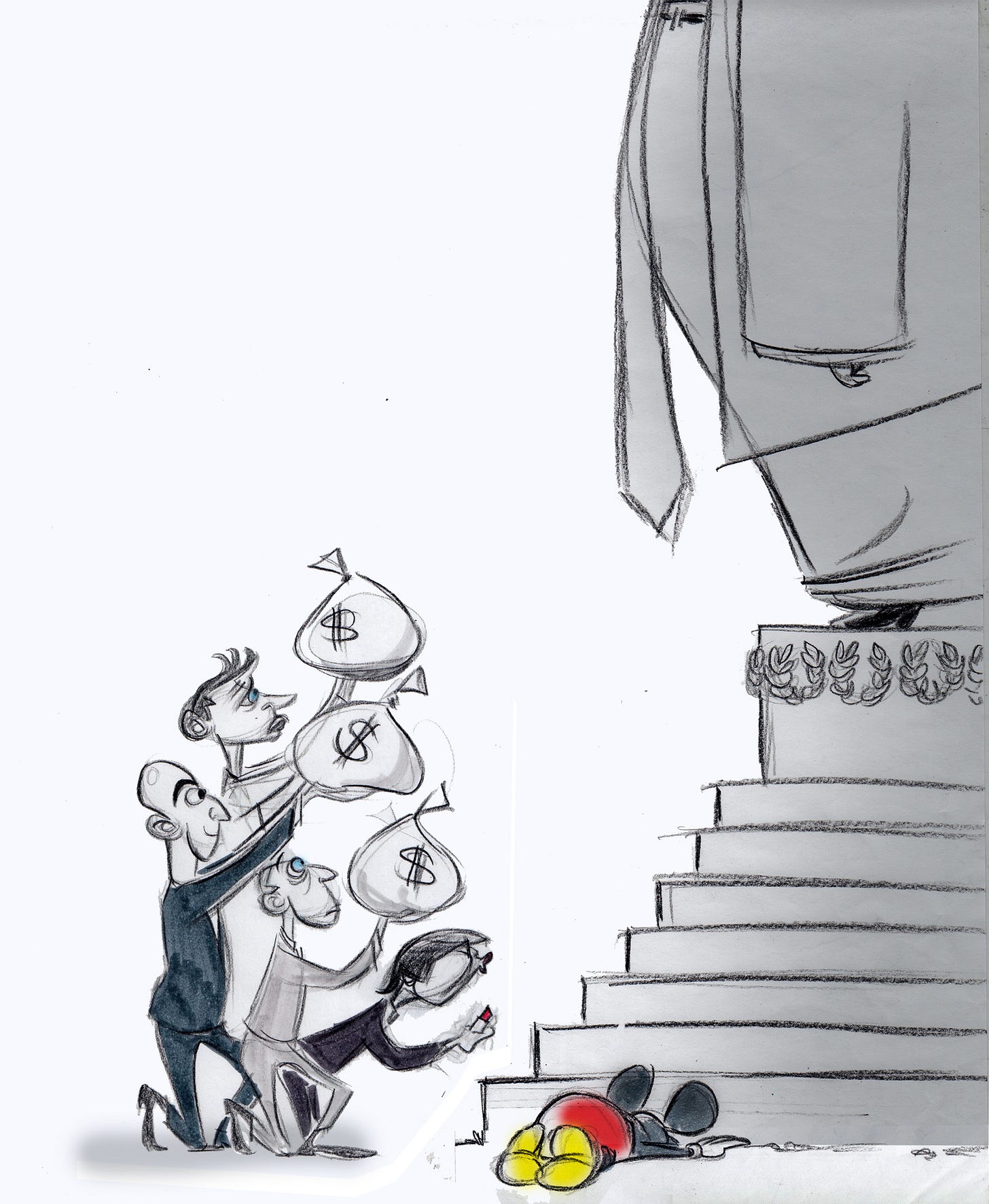
The Future of Journalism
is a constellation of non-profit news organizations that advocate openly for certain causes. These newsrooms will rely on donations and subscriptions to produce work on social media platforms such as Instagram, TikTok and YouTube.
A few of the old organizations might survive, like the Associated Press or The New York Times. But expect to see the death of mainstream media outlets like CNN and The Washington Post in our lifetime.
For journalists like me, this means that it is time for us to start posting our work on social media. We need to meet the public where they are: so we have to start making short-form videos where we show our faces.
It also means we need to disclose our political beliefs, identities and biases. The public does not believe we are “neutral” or “objective” so we can stop pretending to be. The benefit of that is that we are free to publicly state our political views and openly advocate for causes we believe in.
Fifty Years of Failure
Back in the mid-70s a polling organization called Gallup asked Americans how much they trusted mainstream media. Then they started asking that question every year starting again in the mid-90s. What Gallup found was that little by little, with a few exceptions, the country has lost trust in journalists like me to tell them what’s going on in the world.
This chart backs up what I’ve been hearing out in these streets. Friends of mine have told horror stories of places like CNN and the BBC twisting their interviews to fit an agenda. The doorman at one of my old buildings here in Gotham once held up a copy of The New York Times print edition and said, “you see this? 40, no 60% fake.”
And now, both the Los Angeles Times and the Washington Post have been muzzled by their billionaire owners. Last year both papers were blocked from publishing endorsements of Kamala Harris for president. And just a few days ago, a Washington Post cartoonist resigned after being told the paper wouldn’t run the following cartoon depicting the Post’s owner Jeff Bezos kneeling before President Trump:
So Now What?
America is going to see something it hasn’t seen for nearly a century: a fighting press, proudly standing against the “broligarchy.” It’s the end of consensus on facts. It’s the beginning of the public comparison-shopping our takes on breaking news. Pour one out (if you must) for the days when everyone believed whatever TV anchor Walter Cronkite told them.
But I won’t.
How many South Asians like me were part of mainstream newsrooms back then? How about women? Black folk? Native Americans and Indigenous people? All that consensus was built on excluding voices like ours. And now, we can speak for ourselves.
I keep referencing this letter from Samuel G. Freedmen in the Columbia Journalism Review, but it really has helped me figure out what to do now that Trump has been re-elected:
Your cohort, having come of age among #MeToo and #BlackLivesMatter, has already been … pushing for advocacy journalism to be the center rather than the alternative … the news organizations that you will be populating and perhaps leading must regard themselves as part of a principled resistance. The weapons will still be truth and facts, but they must be explicitly deployed in opposition to authoritarianism.
Advocacy Journalism is defined as “journalism that advocates a cause or expresses a viewpoint.” No more just presenting the facts. It’s time to take a stand in my work.
Speaking of my work, I’m going to follow the data laid out in an opinion column by Bill Keller, who used to be the top editor at The New York Times. Americans are increasingly turning to Instagram, TikTok and YouTube to get their news.
That means that part of my job search is going to be publishing work and building an audience on those social media platforms. I ain’t too proud to go where the people are.
The Never-Ending Battle
Yes, it's Superman--strange visitor from another planet who came to Earth with powers and abilities far beyond those of mortal men. Superman--defender of law and order, champion of equal rights, valiant, courageous fighter against the forces of hate and prejudice, who, disguised as Clark Kent, mild-mannered reporter for a great metropolitan newspaper, fights a never-ending battle for truth and justice.
Ever since I came back to New York a year ago, I’ve been trying to figure out what I’m supposed to be. I knew I had to become more than the angry, judgmental person I was before.
In the story of Superman, an immigrant who turns into a reporter, I think I’ve found that purpose. I can be an example for other South Asians of someone who doesn’t follow the familiar path of doctor-lawyer-engineer.
I can be that reporter who advocates for the children of Gaza. I can call out an alleged sex criminal angling to be Attorney General. And I can pen a stinging polemic challenging Baby Boomers. I can turn my strength into a shield for the vulnerable.
Superman’s traditional name is Kal-El, just like mine is Laplam Alex Vasant. The suit he wears is the traditional ethnic wear of Krypton. so I’ve decided to wear a sherwani and dhoti for formal occasions.
Of course, I don’t have super powers. And I definitely serve more mild-mannered reporter over swoonworthy superhero. But I can fight evil billionaires and stick up for the little guy.
So that’s my pledge to you moving forward:
I’m here to fight for truth, justice and a better tomorrow.






As a child of the sixties, it is so so so shocking to watch our country descend into a kakistocracy.
I was a high school student for one year in communist Romania, this soon after Watergate and Nixon's resignation. Our Romanian history texts recorded a distorted history. For example, that the US signed a peace treaty with Japan and then, after, dropped the bomb. I said that wasn't true. My classmates asked how I could know that? Maybe my government was lying. I said it was because we had newspapers, independent journalism. See, our President had to resign. And since then I have insouciantly relied on independent, inquisitive, bold journalism as a balance of power.
Go, Vanant, go!